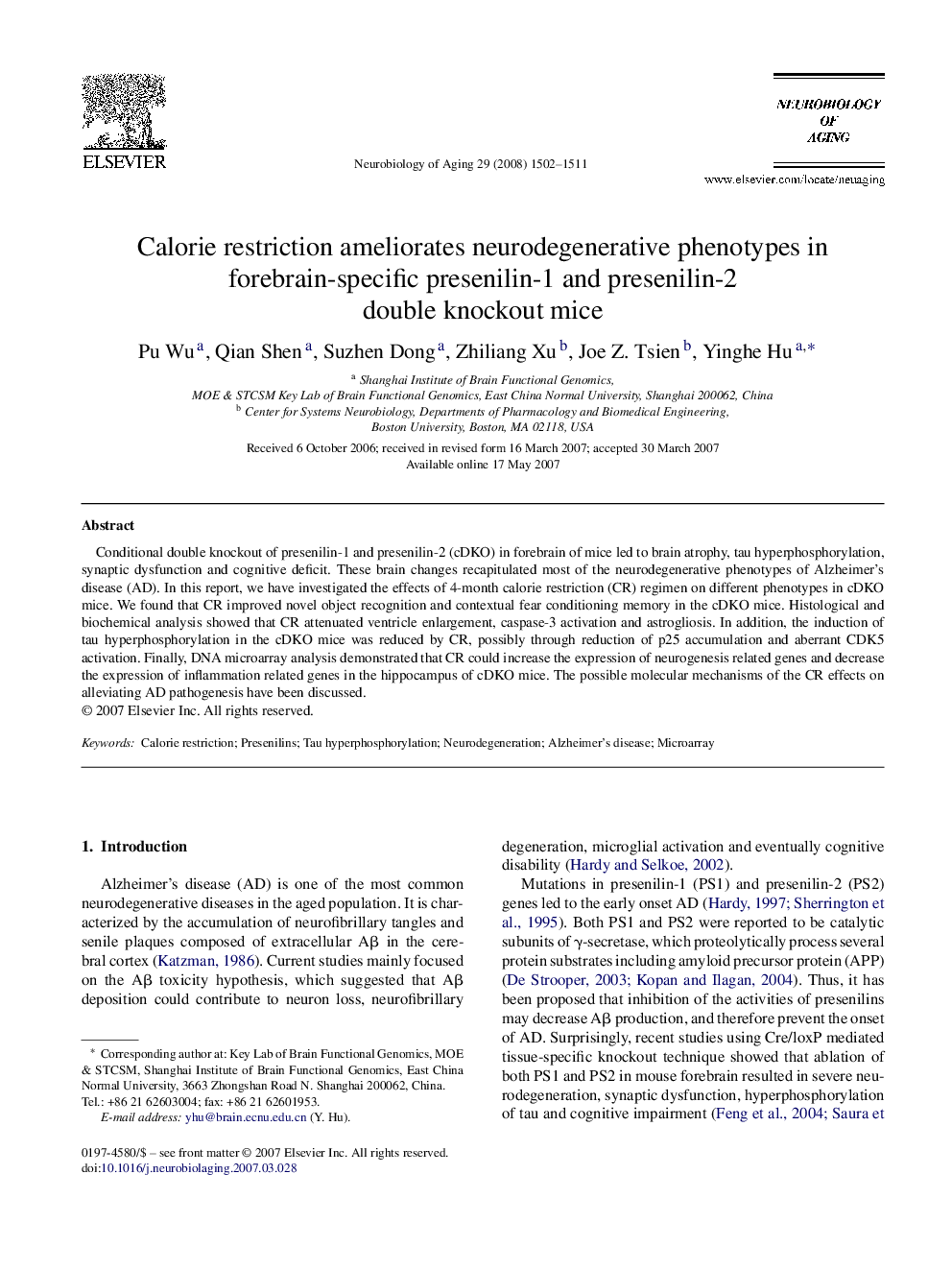| Article ID | Journal | Published Year | Pages | File Type |
|---|---|---|---|---|
| 329504 | Neurobiology of Aging | 2008 | 10 Pages |
Conditional double knockout of presenilin-1 and presenilin-2 (cDKO) in forebrain of mice led to brain atrophy, tau hyperphosphorylation, synaptic dysfunction and cognitive deficit. These brain changes recapitulated most of the neurodegenerative phenotypes of Alzheimer's disease (AD). In this report, we have investigated the effects of 4-month calorie restriction (CR) regimen on different phenotypes in cDKO mice. We found that CR improved novel object recognition and contextual fear conditioning memory in the cDKO mice. Histological and biochemical analysis showed that CR attenuated ventricle enlargement, caspase-3 activation and astrogliosis. In addition, the induction of tau hyperphosphorylation in the cDKO mice was reduced by CR, possibly through reduction of p25 accumulation and aberrant CDK5 activation. Finally, DNA microarray analysis demonstrated that CR could increase the expression of neurogenesis related genes and decrease the expression of inflammation related genes in the hippocampus of cDKO mice. The possible molecular mechanisms of the CR effects on alleviating AD pathogenesis have been discussed.
